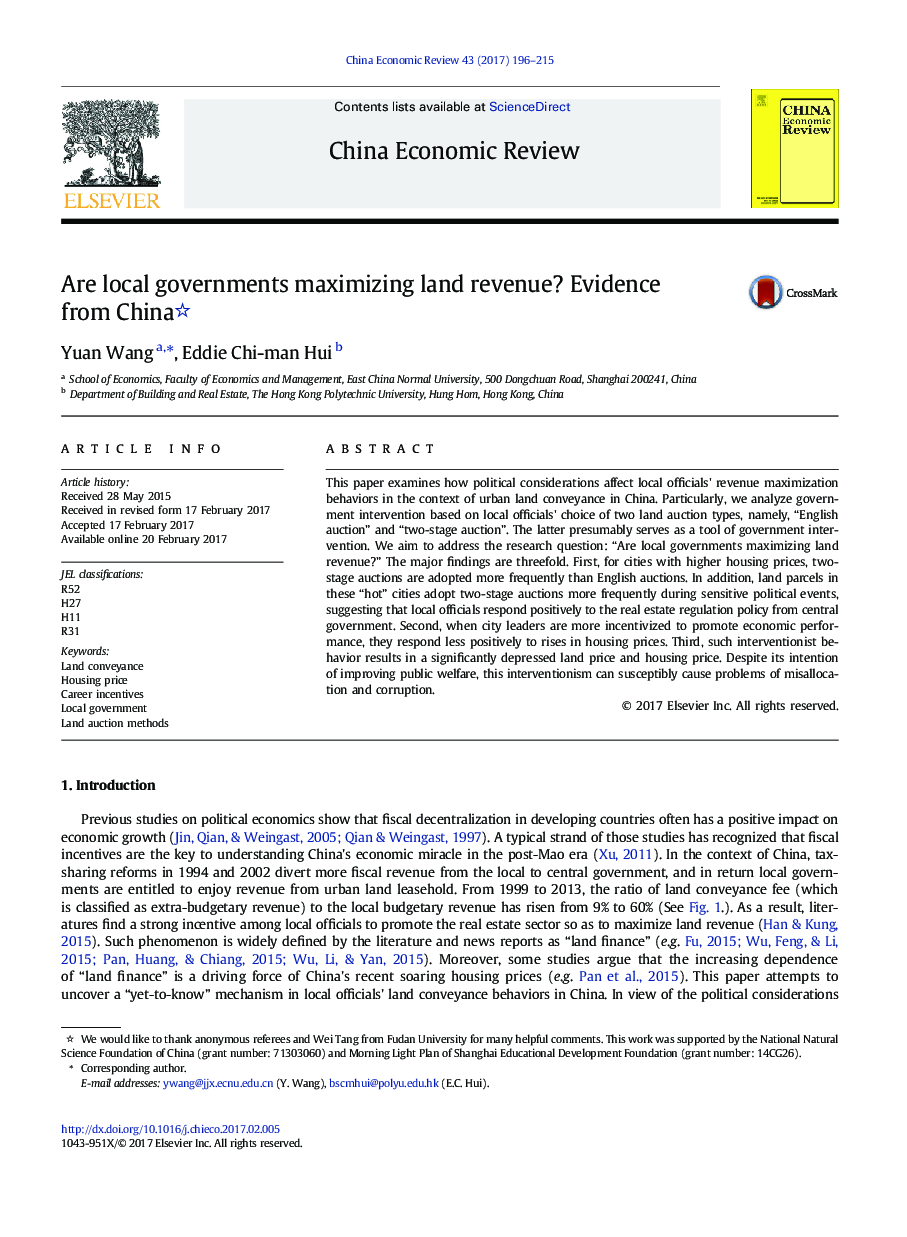| Article ID | Journal | Published Year | Pages | File Type |
|---|---|---|---|---|
| 5047298 | China Economic Review | 2017 | 20 Pages |
Highlightâ¢Effect of the real estate regulation policy on land conveyance decision is examined.â¢Extent of intervention is measured based on the choice of two land auction methods.â¢Intervention is more intense in cites with higher housing prices.â¢Intervention is less intense when city leaders have shorter tenures.â¢Parcel prices and housing prices are depressed using two-stage auction.
This paper examines how political considerations affect local officials' revenue maximization behaviors in the context of urban land conveyance in China. Particularly, we analyze government intervention based on local officials' choice of two land auction types, namely, “English auction” and “two-stage auction”. The latter presumably serves as a tool of government intervention. We aim to address the research question: “Are local governments maximizing land revenue?” The major findings are threefold. First, for cities with higher housing prices, two-stage auctions are adopted more frequently than English auctions. In addition, land parcels in these “hot” cities adopt two-stage auctions more frequently during sensitive political events, suggesting that local officials respond positively to the real estate regulation policy from central government. Second, when city leaders are more incentivized to promote economic performance, they respond less positively to rises in housing prices. Third, such interventionist behavior results in a significantly depressed land price and housing price. Despite its intention of improving public welfare, this interventionism can susceptibly cause problems of misallocation and corruption.
